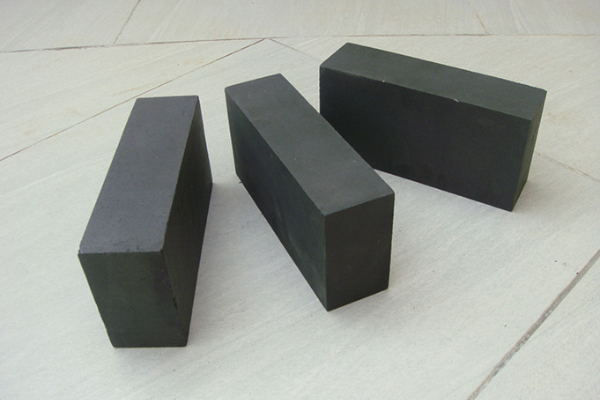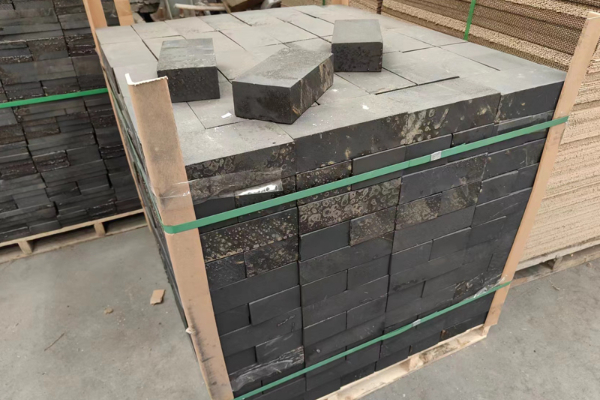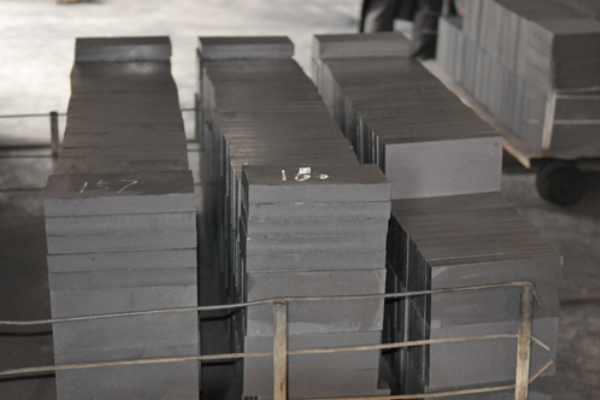Zavedení antikorozních uhlíkových cihel
Antikorozní uhlíkové cihly používají ropný kalcinovaný koks, hutnický koks, a grafitový prášek jako agregáty, s fenolovou pryskyřicí jako pojivem. Po zamíchání (pojivem je kapalná fenolová pryskyřice), lisování lisování, high-temperature curing, and then impregnation with liquid phenolic resin It is processed by processes such as solidification and solidification and has super acid resistance and corrosion resistance. It is an ideal lining anti-corrosion material for the chemical industry, phosphate fertilizer, electric power energy, hutnictví, mining, jaderná energie, ropa, water treatment, atd.

Characteristics of graphite carbon brick
- Excellent corrosion resistance
The product uses calcined petroleum coke as aggregate and coal pitch as binder. The finished product is both acid and alkali-resistant and high-temperature-resistant. - Stable performance and strong durability
The product is roasted at high temperature and its structure is extremely stable. The structure of the product will not change with temperature changes. - Accurate appearance and dimensions
The finished product is molded and then machined, with good quality and precise dimensions. All products can be produced according to user requirements and can fully meet various construction and masonry technology requirements.

Physical and chemical indicators of anti-corrosion carbon bricks
| Položka | unit | Anti-corrosion carbon brick |
| Capacity | G/cm3 | 1.65-1.7 |
| Compressive strength | MPa | >45 |
| Flexural strength | MPa | >12 |
| Maximální provozní teplota | ℃ | 150 |
| Proti pronikání | MPa | 0.8 |
What acidic substances can anti-corrosion carbon bricks deal with?

Anti-corrosion carbon bricks can be used in some hydrofluoric acid and hot phosphoric acid environments, a kyselinovzdorné cihly or keramické dlaždice odolné vůči kyselině can be used in acidic environments such as sulfuric acid, kyselina chlorovodíková, a kyselina dusičná.
 Továrna na žáruvzdorné materiály Rongsheng
Továrna na žáruvzdorné materiály Rongsheng
WeChat
Naskenujte QR kód pomocí wechat